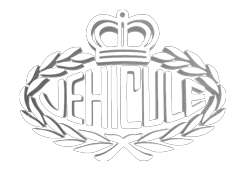Al Copeland was a man whose life embodied speed, success, and an unshakable sense of values. His journey, from humble beginnings in New Orleans to becoming a millionaire businessman and champion offshore powerboat racer, is the tale of a man who refused to settle for less than excellence. Whether it was in the world of fast food or fast boats, Copeland was driven by an inner desire to win, to be the best, and to live life on his own terms.
Born in New Orleans, Copeland was the youngest of three brothers. After his parents divorced, he was raised by his grandmother in a modest neighborhood, facing many of the challenges that come with such an upbringing. Copeland dropped out of school by the 10th grade, determined to make something of himself. His entrepreneurial spirit was ignited by a simple conversation early in his working life, when a fellow employee explained why he worked so hard: “Because I’m the best.” From that moment, Copeland vowed to be the best in everything he did.
He started his business career selling baby food and working in his brother’s doughnut shop. In 1972, Copeland took a bold step, opening a small chicken restaurant in New Orleans. Inspired by the bold Cajun flavors of his hometown, he named it Popeyes, after a character in "The French Connection." What began as a single store would soon explode into an empire, with Copeland leading the charge. By the late 1980s, Popeyes had grown into a massive chain of more than 800 locations, and Copeland had acquired 1,400 Church’s Fried Chicken restaurants as well.
Though a crash in the junk bond market led to financial struggles in 1991, forcing Copeland into bankruptcy, he didn’t let that setback define him. He walked out of bankruptcy with a deal that secured his financial future, allowing him to continue supplying Popeyes and Church’s with spices and other food products through his Diversified Foods Company. This resilience only strengthened his legend, as he continued to expand his business ventures, including launching Copeland’s Famous New Orleans Restaurant & Bars and other dining concepts across the country. By the time he sold his interest in Popeyes in the early 1990s, Copeland’s net worth was estimated at over $400 million.
Copeland’s business success was matched only by his passion for offshore powerboat racing. In the late 1970s, Copeland discovered a love for speed, buying a speedboat for leisurely Sundays on Lake Pontchartrain. His first boat, equipped with Oldsmobile engines, quickly earned him a reputation as the fastest boat on the lake, sparking a competitive fire in him that would fuel years of racing victories.
Determined to be the best in powerboat racing just as he was in business, Copeland soon found himself in the world of offshore powerboat competitions. He formed the Popeyes Offshore Racing Team, which became one of the most successful teams in the sport.
Copeland’s journey in offshore racing wasn’t without its challenges. His first race in 1980 was a learning experience, as he battled through rough seas, finishing second despite entering as a rookie. But each race, win or lose, pushed him to build faster, more powerful boats. By the mid-1980s, Copeland’s team was practically unbeatable, setting records for speed and endurance, including a run from Miami to New York in 20 hours and 42 minutes.
Even after a near-fatal snowmobile accident in the 1990s that left him with a spinal cord injury, Copeland’s love for speed didn’t wane. Though the accident marked the end of his racing career, it didn’t stop him from building the fastest boats in the world. Working with renowned boat builder Howard Arneson, Copeland constructed a series of turbine-powered race boats that could reach astonishing speeds of 166 mph, ensuring that his reputation as the fastest man on the water remained intact.
Copeland’s life wasn’t just about racing and business. He was also a family man, deeply committed to his children and loved ones. He purchased a sprawling 22-acre estate in Mandeville, Louisiana, which he planned to turn into a family compound, complete with a private marina, stables, and a helicopter pad. Every Christmas, his home would light up with over a million holiday lights, a tradition that became famous in New Orleans.
In every aspect of his life, Copeland lived with boldness and conviction. He was a man of action who believed in hard work, family, and the importance of enjoying the fruits of his labor. Whether it was driving his Lamborghini Diablo, cruising in his opulent 120-foot yacht, the Cajun Princess, or racing across the ocean at breakneck speeds, Copeland did everything with intensity and flair.
He once remarked, “If I can’t play with it and have fun with it, I don’t want it anymore,” a philosophy that defined his approach to life. Al Copeland wasn’t just a fast-food mogul or a powerboat racer; he was a man who took risks, built empires, and lived life on his own terms. His legacy is one of success, speed, and the relentless pursuit of being the best—whether on the water, in business, or in life.





